A log house in Russia was not just a house, it was a family member, a treasure that was carefully kept and passed on by inheritance. Its construction was approached with due respect and special techniques that helped to preserve the wood not just for decades, but for centuries. To this day, archaeologists find the remains of settlements, in which wooden structures more than 1000 years old have remained. What's the secret to this durability? Why now the wooden flooring is rotting for a couple of years? Does it make sense to use old technologies? And how can they be modified for modern materials and tools?
Read in the article
- 1 Purification by fire - as in the old days the ancestral curse was removed
- 2 How to preserve wood by burning
- 3 Why old technologies have the right to exist
- 4 Where else can this technology come in handy?
- 5 Remark: Another way to note
Purification by fire - as in the old days the ancestral curse was removed
Since the man has tamed the fire, he has become his faithful assistant and protector. And this is not just about cooking and fighting the cold. Here's an example for you: if in one family the deaths of one member after another began, the whole village came to the rescue to save the ancestral curse. The blockhouse was dismantled on a log, each log was carried through the fire and the house was reassembled, but in a different place.
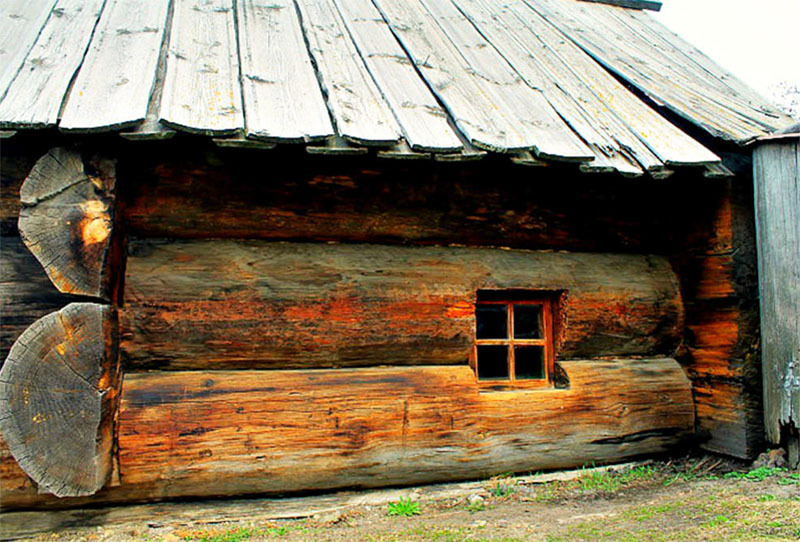
How to preserve wood by burning
The first rule that every master knows is that the tree must be thoroughly dried before any work. It is clear that not everyone has such an opportunity - to organize drying on their site. In this case, it is simply worthwhile to approach the issue of purchasing material with particular passion.
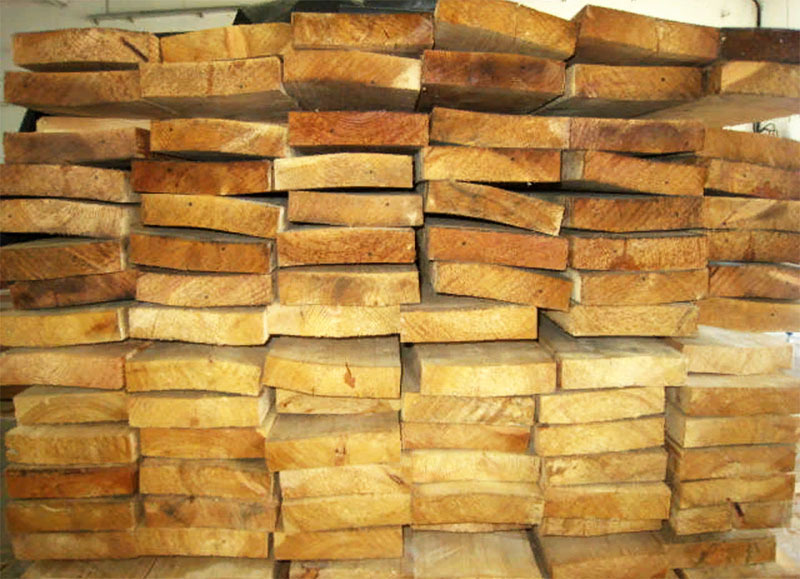
Many unscrupulous traders in a desire to quickly sell their goods will convince you of its quality, but it is very simple to check everything.
There are several ways, but the most primitive is the use of ordinary pharmaceutical iodine. If iodine is applied to the end of a wet board, it will remain yellow, and upon contact with a dry board, it will turn purple. You can also tap the materials with a wooden stick. Dry lumber will make a ringing sound, raw timber will make a dull sound.
To preserve the tree, you need to burn it. And not just superficially, but thoroughly, up to slight charring of the surface.
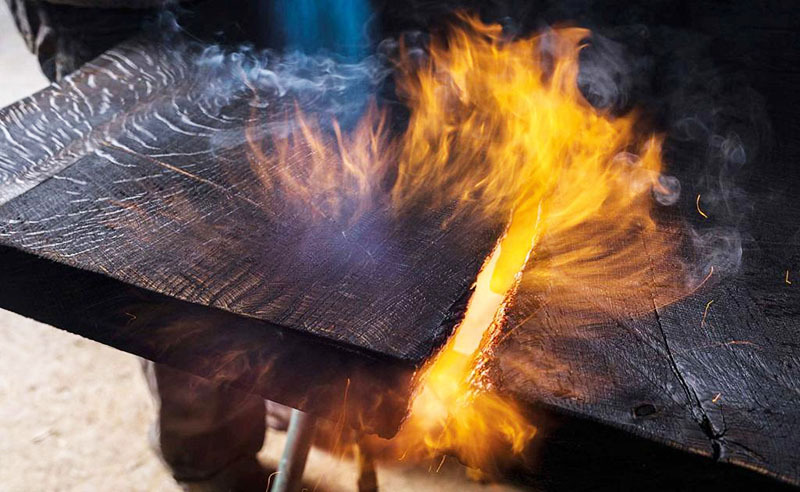
Firing not only removes all moisture from the surface of the material, but also destroys the spores of fungi and bacteria, which can then begin to destroy your structure.
And the final stage of processing is covering the burnt wood with a layer of heated oil. In the old days, linseed was used. Now this method can be called a luxury - linseed oil is not cheap, technical - about 6,000 rubles. for 50 liters. You can replace it with working off or drying oil. The oil makes the wood water-repellent.
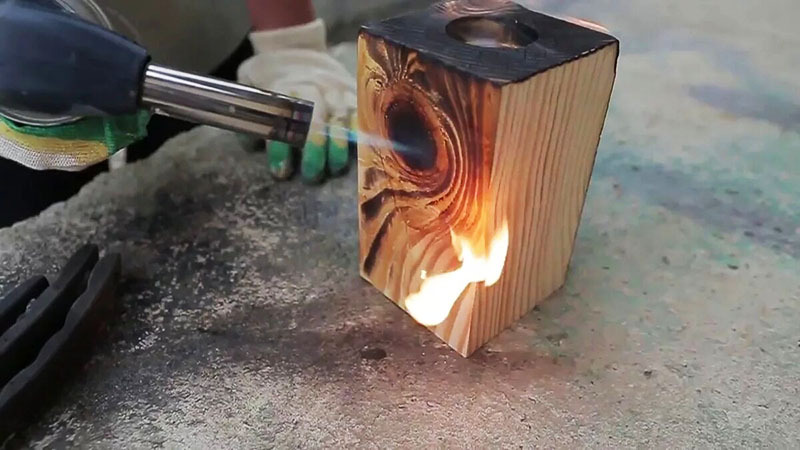
Why old technologies have the right to exist
Immediately in response to skeptics who will begin to criticize the methodology as outdated. Yes, there is now an incredible range of modern wood preservatives. But tell me, at least one of them has been tested at least half a century of practice? Do you want to test it on your descendants? Is there any confidence that all these chemical compounds, evaporating into the air in your home, will not make your children and grandchildren disabled?
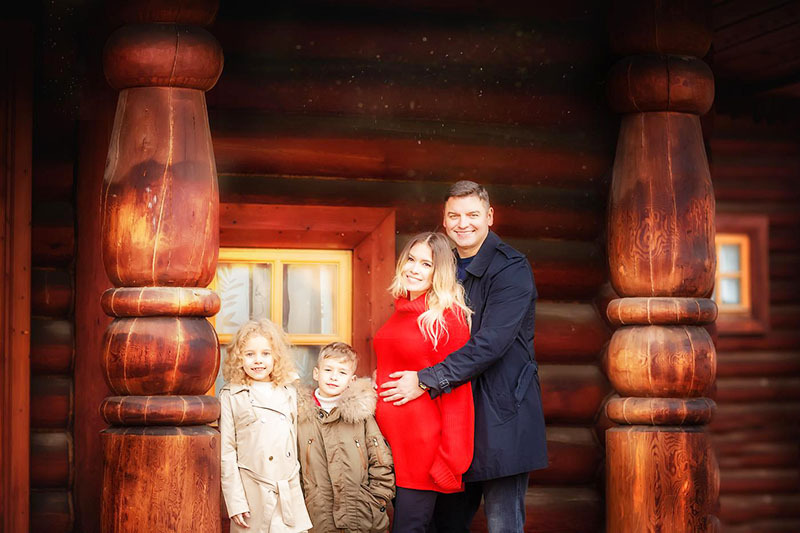
And now these "outdated technologies" are more expensive than modern ones. For example, order the processing of a wooden structure with an area of 100 m2 by firing in St. Petersburg will cost you at least half a million. And such firms, despite the simplicity of the technology, thrive because there are more than enough customers.
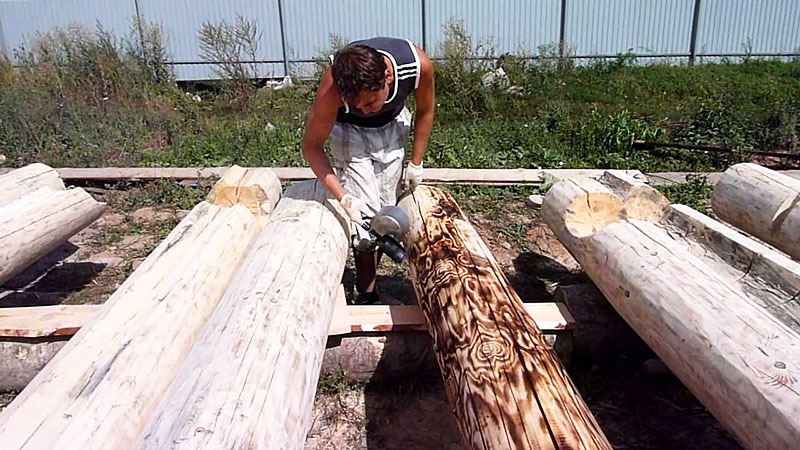
Where else can this technology come in handy?
Of course, not everyone erects log cabins, but we use wood almost everywhere. The firing treatment will make your deck decking, tall bed boxes or saw-cut garden paths durable. It is in such places where the tree is in contact with soil and water that it breaks down the fastest.
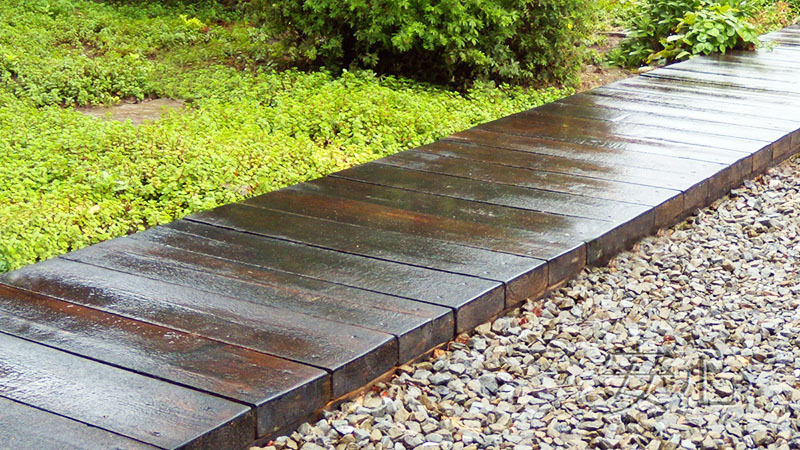
Remark: Another way to note
In all fairness, since we are talking about old technologies, we need to mention one more, not so widespread, but also very effective. To preserve the lower rims of log cabins in the old days, they used the method of heating without access to air. For this, the logs were buried in the sand, and a fire was made from above. In the absence of oxygen and high temperatures, the surface of the wood polymerized.
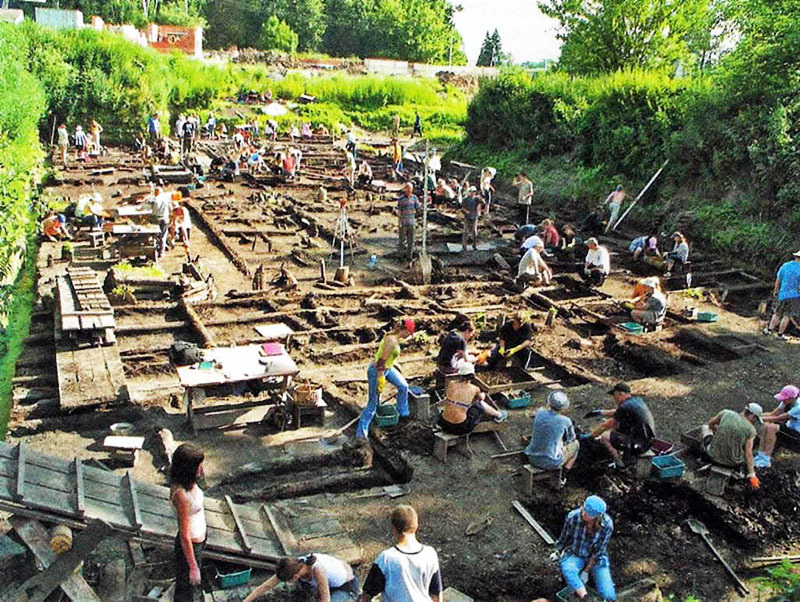
The stained wood was also especially appreciated. The peasants even paid the quitrent with this material:
What do you think of the above technologies? Do you have any experience in this matter? Share it in the comments!



